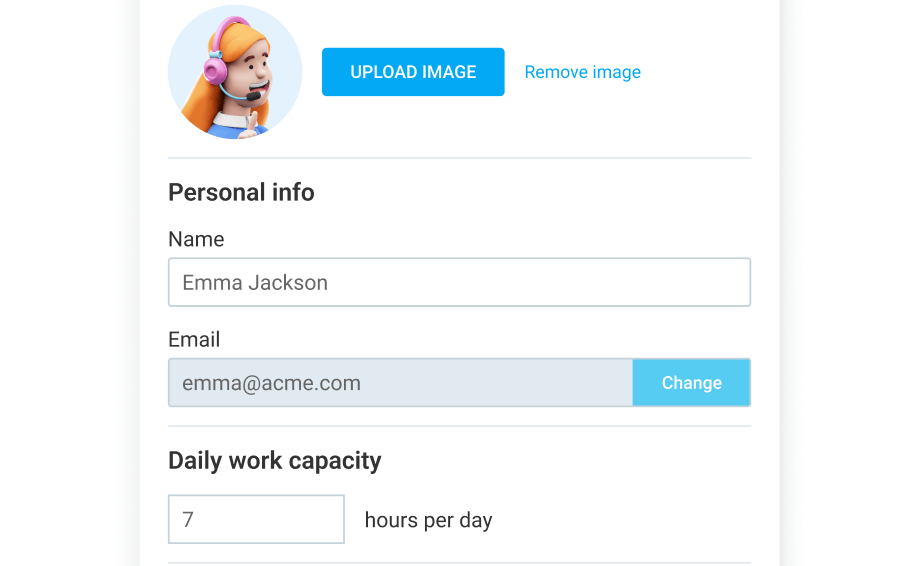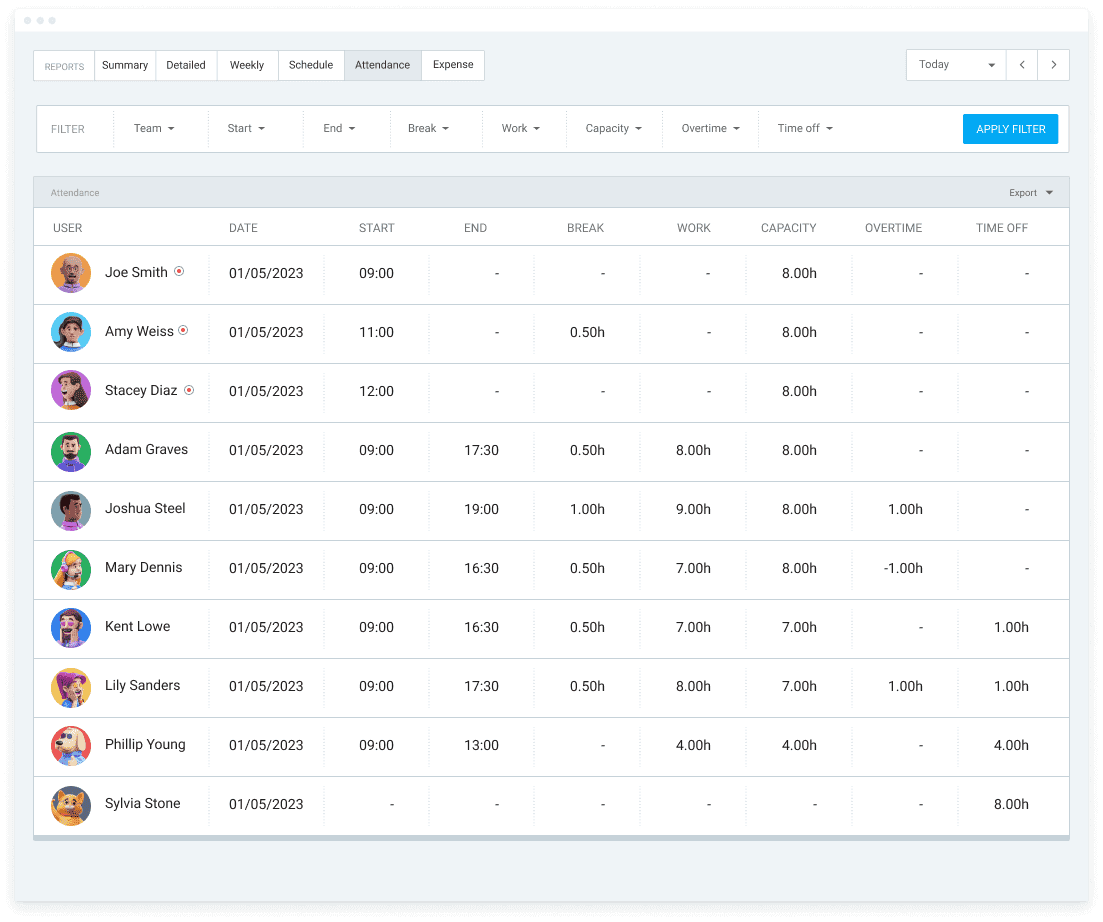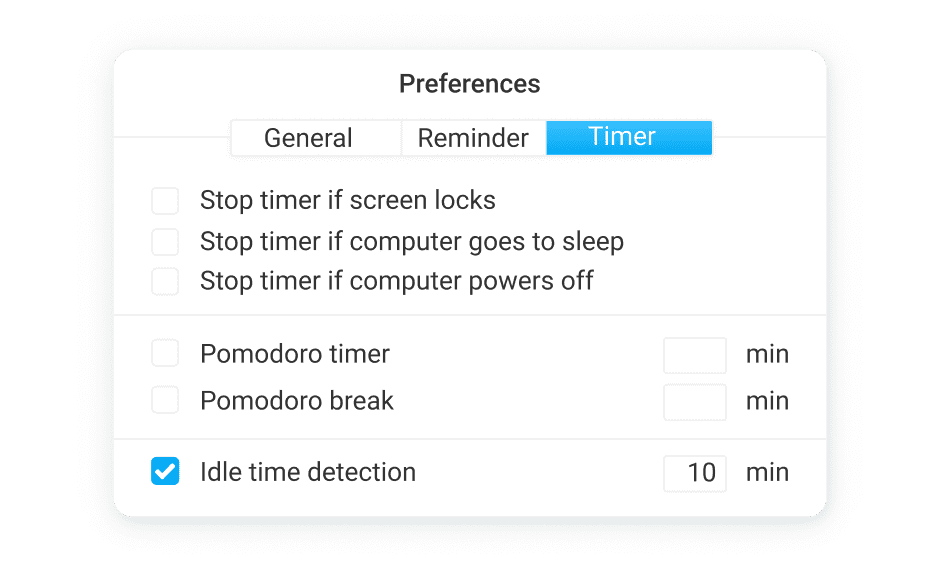If you want a short response, the answer is quite simple: no, you should not work overtime without pay, for the sake of your health and overall wellbeing. But when laws and finances come in, things can get a lot more complicated than that.
If you want to dive deeper and learn more about the financial aspect of working overtime, keep reading. In this article, we’ll talk about working overtime without pay and try to answer how to go about common concerns regarding working off-clock (mostly in the USA and EU).
Table of Contents
What does it mean to work overtime?
Overtime refers to the hours you spent working that exceed your regular working hours (typically, 40 hours a week).
Fair Labor Standards Acts (which requires FLSA compliance) looks at weeks, not days. That means that, as long as you’re working 40 hours a week or less, that’s not considered working overtime, no matter how long your daily shift is. However, in some states such as Alaska and California, employers are required to pay workers overtime if they work more than 8 hours per day.
In some countries in Europe, such as Germany, there’s also a daily limit: the maximum amount of working time per day is ten hours (if within six months the overall average working time doesn’t exceed 8 hours a day).
There are three types of working overtime, depending on the way working overtime is handled in your contract of employment. It’s important to know that you are only obliged to work overtime if that is stated in your contract.
- Voluntary: overtime hours that are at employees’ discretion. There is no obligation in the contract to work overtime.
- Compulsory and guaranteed: it’s written in the contract that employees must accept overtime when it’s offered. It’s common for jobs that require on-call duties or meeting up with clients outside the regular working hours.
- Compulsory but non-guaranteed: if you are offered to work overtime, you must accept it, but it’s rarely offered. It’s mostly reserved for busy periods of the year.
Is it legal to work overtime without pay?
No (in most cases — see exceptions in the question below).
According to US federal law, it’s illegal to not compensate non-exempt employees for working overtime, even if they do it without the employer’s approval. You are owed 1.5x your regular rate of pay for any overtime hours worked. So, for example, if your normal hourly wage is $20, you should be paid $30/hour when you work overtime.
If an employer fails to fairly compensate their employees for their overtime labor, they have to face the following penalties:
- paying for those extra hours,
- paying fines from the state or the Department of Labor, including liquidated damages and civil penalties.
- If they continue to avoid paying, they could face criminal charges.
We can conclude that avoiding to pay overtime is not really worth it, as you’ll end up cashing a lot more than the original sum. As there are serious consequences for not handling overtime pay properly, always seek legal advice when in doubt.
Every business that fulfills the following criteria is required to pay their employees overtime:
- If it has $500,000 in annual sales,
- If it’s smaller, but your employees work in “interstate commerce”, or do business between states,
- If it’s covered by its state’s overtime law.
When are you not entitled to overtime pay?
According to FLSA, employers aren’t required to pay overtime for working during the weekend, holidays, or other regular days of rest, unless that’s over your normal work hours.
Unfortunately, there are also some other circumstances in which you’re not entitled to overtime pay:
- If you are an employee paid on a salary basis with a weekly pay of $684 or more. Those employees are called exempt employees, and, unlike their non-exempt colleagues, they are not entitled to overtime pay nor minimum wage. Exempt job categories include professional, administrative, executive, outside sales, and computer-related.
That means that, if you’re an exempt employee who gets paid $800 per week and you work a few hours over your regular 40 hours, you’re not legally entitled to be paid more than $800. - If you are an independent contractor, as they’re technically not employees.
- If you work for seasonal amusement or recreational business.
- If you’re an administrative, executive, or professional employee paid on a salary basis who spends most of the time performing job duties that require the use of discretion and independent judgment – so-called “white-collar” exemption.
- If you’re an outside salesperson.
- If you work in professions such as criminal investigator, newspaper deliverer, domestic babysitter, seaman, an employee on a small farm, engaging in fishing operations, etc.
In the EU, employees who may be exempted from overtime are the ones whose hours are not pre-determined or can be determined by the workers. Examples include managing executives or other persons with autonomous decision-making power, family workers, and workers officiating at religious ceremonies. Professions such as journalists, off-shore guards, emergency workers, and tour guides can be exempted as well, provided that they have compensatory rest and appropriate protection.
Can working overtime be illegal?
In some instances yes, overtime can be illegal, as employees are human beings, not robots, and they deserve to rest. Besides, being overworked can cause serious health issues (both mental and physical), burnout being the most frequent one. Because of that, most of the countries that have labor laws, also have regulations regarding the maximum number of working hours.
In the EU, it’s illegal to work for more than 48 hours a week on average, over the reference period of 4 months. Employees are also required to have 11 hours of interrupted rest a day, as well as at least one day off every week and two days off every two weeks (in addition to 11-hour daily rest). There are, however, certain exceptions when it comes to jobs such as emergency workers or armed forces.
In the USA, there is no limit on how many hours employees can work in a week, provided they are 16 or older. The FLSA also doesn’t require breaks or meal periods to be given to workers — although some states might do.
How to track overtime hours and why is it required in Europe?
To make sure every employee gets the proper rest they deserve (as we discussed above), tracking overtime hours became a legal obligation in the EU. The Court of Justice of the European Union issued a decision in May 2019 that every member “must require employers to set up an objective, reliable and accessible system enabling the duration of time worked each day by each worker to be measured”, to track both regular and overtime hours.
This decision has a goal to:
- Minimize (or completely avoid) unpaid overtime,
- Make sure employees get enough rest,
- Help with diminishing toxic work culture where productivity is measured in hours spent working instead of the quality of results.
To track overtime hours, it’s best to use a time tracking software, as it’s the fastest and the easiest way to do so.
You can track time via:
- Time recording, by simply clicking “start” when you start working and “stop” when you finish,
- Timesheets,
- Calendar,
- Automatic tracker, if your tasks are digital.
💡 If you’re tracking time for work, you might find these articles useful: How to fill in time reports for work & Best way to track employee hours.
Can you be fired for refusing to work overtime?
According to FLSA (29 U.S.C. § 201 and following), the federal overtime law, an employer can fire an employee if they refuse to work overtime. An employer can also require an employee to work long hours (paid, of course).
However, according to section 62 of the Fair Work Act 2009, an employee has the right to refuse if they find overtime hours to be unreasonable. Factors that can determine if overtime hours are reasonable include:
- If an employee’s health is at risk,
- The workplace’s needs,
- If the employee is given enough notice that they have to work overtime,
- If the employee has already stated that they can’t work overtime,
- The pattern of work of the industry they work in,
- Nature of the employee’s role, etc.
What can I do if my employer doesn’t want to pay me for overtime hours?
If your employer doesn’t want to pay you for the work you put in off-clock, you can ask for time off in lieu (TOIL). That means that, instead of financial compensation, you get extra time off on top of your regular paid leave.
TOIL rules and regulations may differ from company to company, as well as country to country, so it’s best to check your contract to see:
- How exactly TOIL scheme works in your company,
- The minimum amount of time that can be worked to accrue TOIL,
- When TOIL can be taken and does it “expire”,
- What happens to accrued TOIL if the contract is terminated.
Minimize unpaid overtime with Clockify
Sometimes, you find yourself working overtime because you want to appease your boss or show how much you care for the company.
But unpaid overtime is no laughing matter.
Introducing Clockify — a time tracker that cuts down on unpaid overtime and tracks all your work hours accurately.
With Clockify, you can easily set your daily working capacity (like 7 or 8 hours) and use the Attendance report to see whether you worked more or less than that.

You can set daily work capacity by going to your Team page and editing members’ profiles.
Now you’re all set to get insights about whether somebody is working overtime. For this purpose, take a peek at an Attendance report in Clockify, showing:
- Start and end time per employee,
- Breaks,
- Total work hours,
- Overtime, and more.

But even if you or someone else on your team does have overtime hours, they also have proof of work done in their Attendance report. With this information, you can go to your boss and request to be paid for any overtime hours.
But suppose you sometimes forget to log your work hours when you start working. In this case, you can set up Clockify to automatically start the timer as soon as you turn on your computer.

This way, you’ll never let your work hours go to waste because you inadvertently failed to start the timer.
Neat, huh?
Finally, a time tracking system gives you the upper hand in discussions with managers about compensation, workload, and resource allocation.
This way, you can address any challenges of working overtime without pay.
To start earning more and achieve a better work-life balance.


